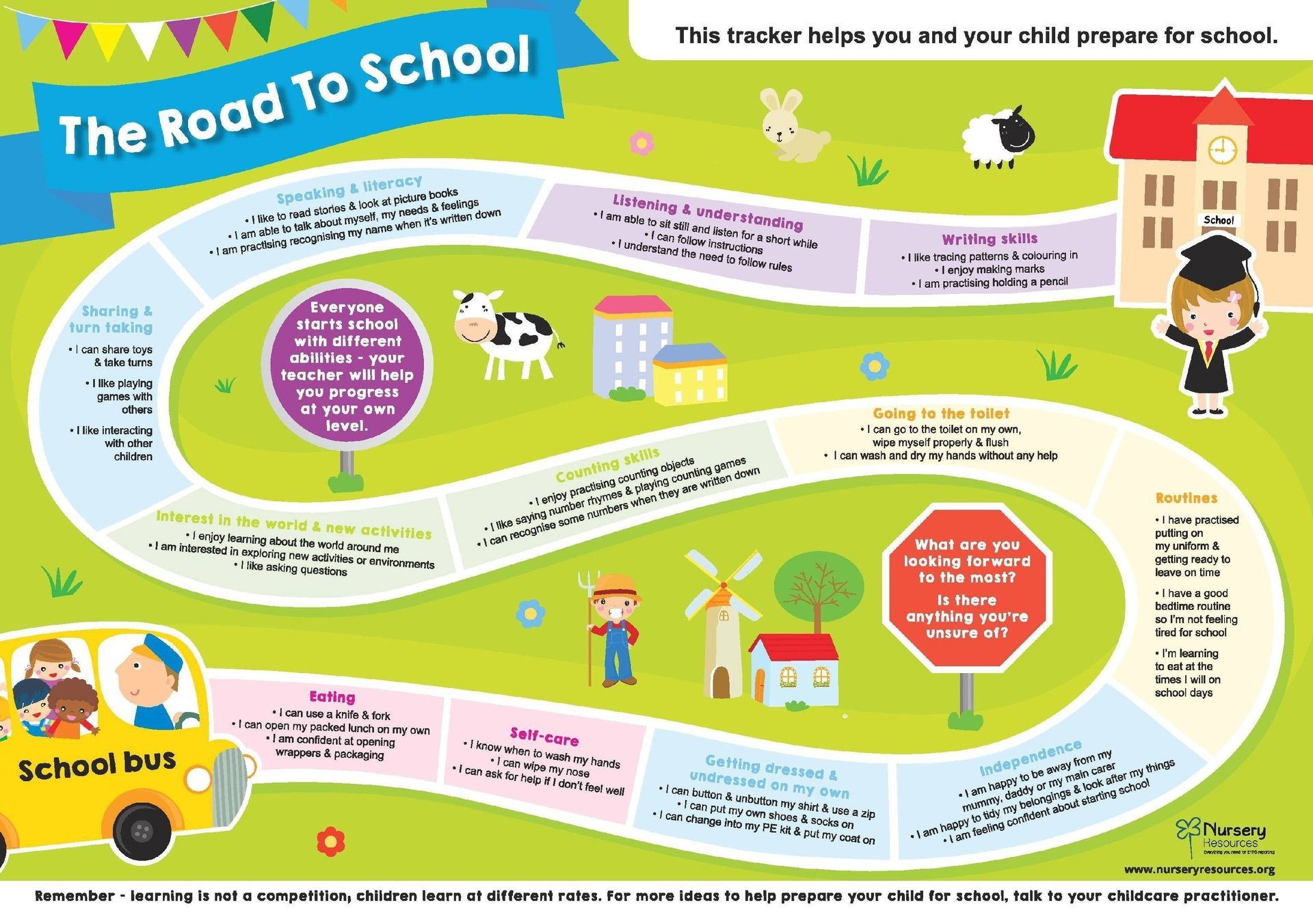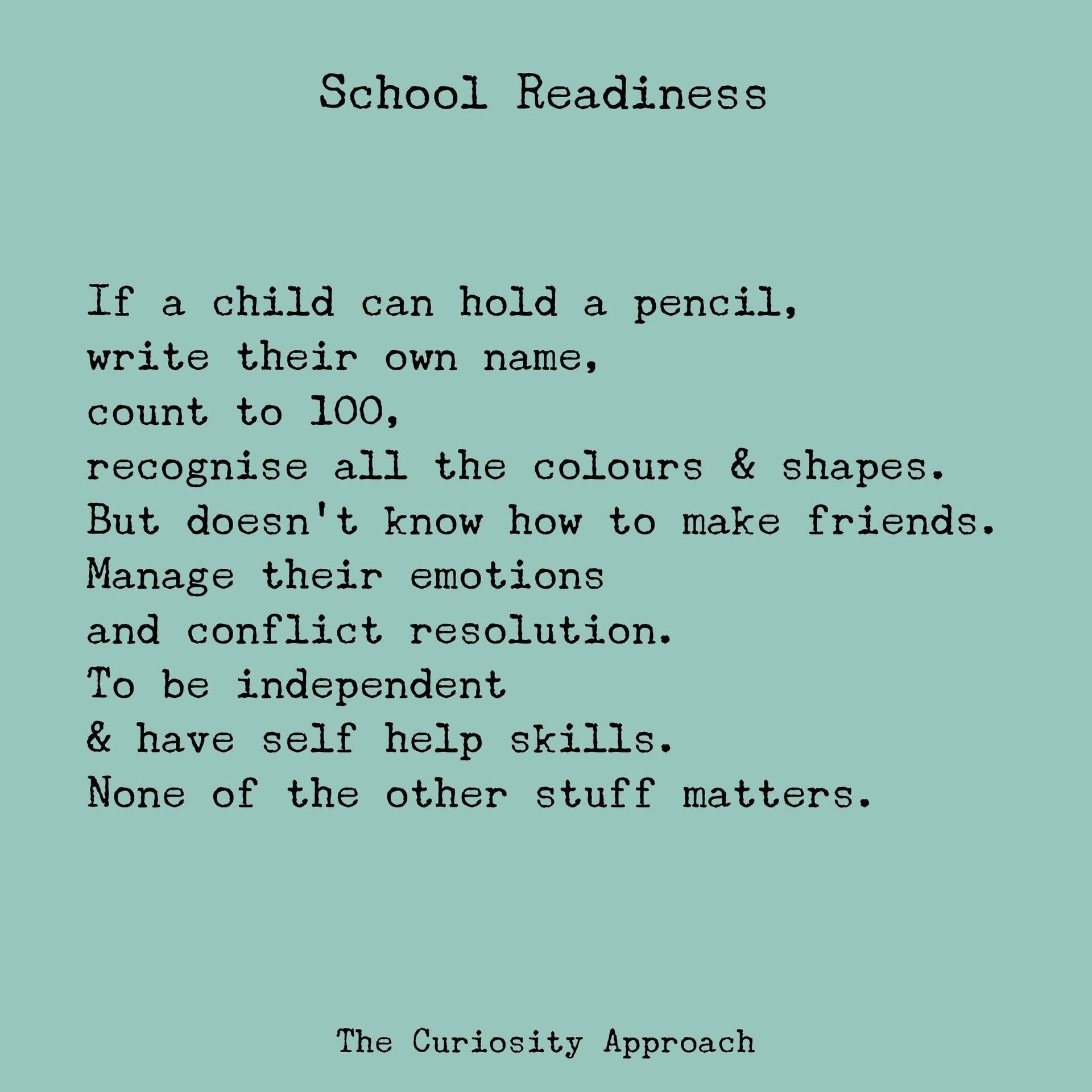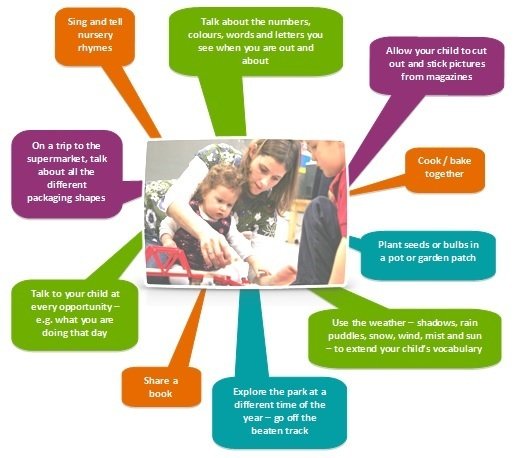Parent Guide to the Early Years Foundation Stage
This is a very important stage as it helps your child get ready for school as well as preparing them for their future learning and successes. From when your child is born up until the age of 5, their early years experience should be happy, active, exciting, fun and secure; and support their development, care and learning needs.
HOW MY CHILD WILL BE LEARNING
The EYFS Framework explains how and what your child will be learning to support their healthy development. Your child will be learning skills, acquiring new knowledge and demonstrating their understanding through 7 areas of learning and development. Children should mostly develop the 3 prime areas first. These are:
Communication and language;
Physical development; and
Personal, social and emotional development.
These prime areas are those most essential for your child’s healthy development and future learning. As children grow, the prime areas will help them to develop skills in 4 specific areas:
Literacy;
Mathematics;
Understanding the world; and
Expressive arts and design.
These 7 areas are used to plan your child’s learning and activities, which are delivered through The Curiosity Approach. This is a little bit like a curriculum in primary and secondary schools, but it's suitable for very young children, and it's designed to be really flexible so that we can follow your child's unique needs and interests. Children in the EYFS learn by playing and exploring, being active, and through creative and critical thinking which takes place both indoors and outside.
WHEN YOUR CHILD IS 2
When your child is settled with us, we will meet with you to create a written summary of how your child is progressing against the 3 prime areas of learning. This is called the ‘Progress Check at Age 2’. This check will highlight areas where your child is progressing well and any where they might need some extra help or support. You might find it useful to share the information from the check with other professionals such as health visitors (who can use it as part of the health and development review).

ENSURING MY CHILD’S SAFETY
Much thought has been given to making sure that your child is as safe as possible. Within the EYFS there is a set of welfare standards that everyone must follow. These include the number of staff required in our setting, and things like administering medicines and carrying out risk assessments.
HOW CAN I HELP WITH MY CHILD’S LEARNING?
All the fun activities that you do with your child at home are important in supporting their learning and development, and have a really long lasting effect on your child’s learning as they progress through school. Even when your child is very young and is not yet able to talk, talking to them helps them to learn and understand new words and ideas. If you make the time every day to do some of the following things with your child it will make a real difference to your child’s confidence as a young learner. If you're looking for new ideas for things to do then find out what is on offer at the children’s centre. Many offer ‘messy play’ activities which you and your child can join in with, and many of the activities they provide are free. Don’t forget you can also upload some of the exciting things you do onto Tapestry too. This will help your Keyperson to assess your child’s development. Click HERE to download a booklet about helping young children to learn skills for talking.
You can also click here to visit the EYFS website.












